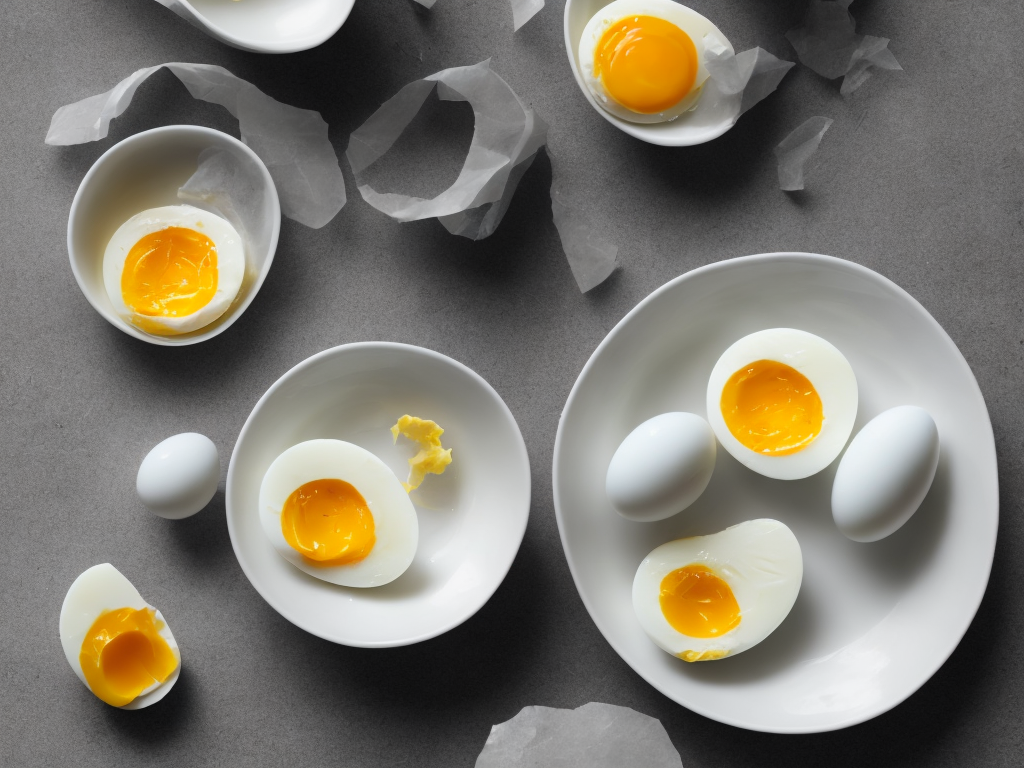
How To Boil An Egg: A Simple Guide
Boiling an egg may seem like a simple task, but achieving the perfect boiled egg can sometimes be a challenge. Whether you prefer your eggs soft-boiled with a runny yolk or hard-boiled with a firm yellow center, getting the cooking time and method right is key. In this article, we will guide you through the step-by-step process of boiling an egg to perfection.
Step 1: Selecting the Eggs
The first step towards boiling the perfect egg begins with selecting the right eggs. Freshness is crucial for achieving the desired results. Avoid using eggs that are approaching their expiration date or have been sitting in the fridge for too long, as these could affect the texture and taste of the boiled egg. Choose eggs that are several days old so that they are easier to peel.
Step 2: Preparing the Eggs for Boiling
Once you have selected the eggs, it's time to prepare them for boiling. Start by gently placing the eggs in a single layer at the bottom of a saucepan or a pot. Ensure that the pot you choose is large enough to accommodate all the eggs you intend to boil without overcrowding them. Overcrowding the eggs may lead to uneven cooking.
Step 3: Adding Water to the Pot
After placing the eggs in the pot, it's time to add water. The amount of water you add will depend on the desired outcome for your boiled eggs. If you prefer soft-boiled eggs, add enough water to cover the eggs by about an inch. For hard-boiled eggs, add additional water, ensuring that the eggs are submerged by at least two inches. Remember that the eggs may expand slightly during cooking, so be sure to leave some room.
Step 4: Heating the Pot
Now that you have added the appropriate amount of water to the pot, it's time to start heating it. Place the pot on the stove over medium-high heat. Allow the water to come to a rolling boil. This is when the bubbles are consistently and vigorously breaking the surface of the water. Some people prefer a rolling boil, while others prefer a gentle simmer. The choice is yours, but keep in mind that a rolling boil may result in eggs bouncing around the pot, potentially leading to cracks and uneven cooking.
Step 5: Setting the Timer
Timing is crucial when it comes to boiling eggs. Depending on the level of doneness you desire, different cooking times are required. For a soft-boiled egg with a runny yolk, set a timer for 4-6 minutes from the moment the water reaches a rolling boil. For a medium-boiled egg with a custard-like yolk, set the timer for 7-9 minutes. Finally, for a hard-boiled egg with a firm yellow center, set the timer for 10-12 minutes.
Step 6: Cooling the Eggs
Once the timer goes off, it's time to remove the eggs from the heat source and stop the cooking process. Carefully pour out the hot water from the pot and replace it with cold water. Adding ice cubes to the water can help cool down the eggs faster. Allow the eggs to sit in the cold water for a few minutes until they are cool to the touch. This facilitates the peeling process, making it easier to remove the shells without damaging the egg whites.
Step 7: Peeling the Eggs
After the eggs have cooled, it's time to peel them. Gently tap the egg on a hard surface, such as a countertop or cutting board. Begin peeling from the wider end, where the air pocket is located. If the shell does not easily come off, you can try rolling the egg gently between your hands to loosen the shell. Once the shell is removed, rinse the egg under running water to remove any small shell fragments.
Step 8: Serving and Enjoying
Congratulations! You have successfully boiled an egg. Now it's time to serve and enjoy your creation. Boiled eggs can be enjoyed in various ways. You can sprinkle them with salt and pepper, chop them up for use in salads, or use them as a topping for avocado toast. The possibilities are endless!
In conclusion, boiling an egg is a relatively simple process that requires attention to detail and timing. By following the steps outlined in this guide, you'll be able to achieve the desired level of doneness for your boiled eggs, whether you prefer them soft-boiled or hard-boiled. Remember to start with fresh eggs, choose the appropriate cooking time, and properly cool and peel the eggs for the best results. With practice, you'll become an expert in boiling eggs, delighting yourself and others with a versatile and delicious dish.
 Self-Instruct
Self-Instruct